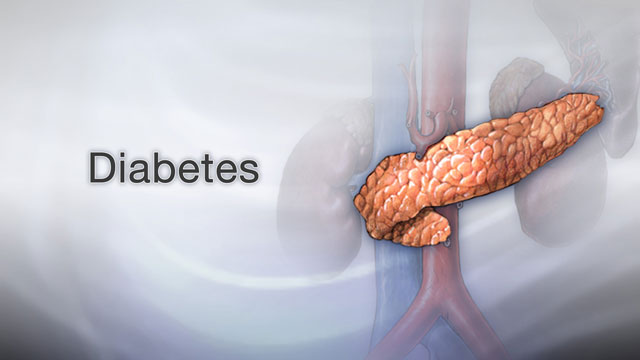ACE inhibitors
Angiotensin-converting enzyme (ACE) inhibitors are medicines. They treat heart, blood vessel, and kidney problems.
How ACE inhibitors help
ACE inhibitors are used to treat heart disease and high blood pressure. These medicines make your heart work less hard by lowering your blood pressure. This keeps some kinds of heart disease from getting worse. Most people who have heart failure take one of these medicines or similar medicines.
High blood pressure
Blood pressure is a measurement of the force exerted against the walls of your arteries as your heart pumps blood to your body. Hypertension is the ...

Heart failure
Heart failure is a condition in which the heart is no longer able to pump oxygen-rich blood to the rest of the body efficiently. This causes symptom...

These medicines treat high blood pressure, strokes, or heart attacks. They may help lower your risk for stroke or heart attack.
Strokes
A stroke occurs when blood flow to a part of the brain stops. A stroke is sometimes called a "brain attack. " If blood flow is cut off for longer th...

They are also used to treat kidney problems. This can help keep your kidneys from getting worse or even improve the function of your kidneys, especially if you have diabetes. If you have these problems, ask your health care provider if you should be taking these medicines.
Diabetes
Diabetes is a long-term (chronic) disease in which the body cannot regulate the amount of sugar in the blood.

Types of ACE inhibitors
There are many different names and brands of ACE inhibitors. Most work as well as another. Side effects may be different for different ones.
Taking Your ACE inhibitors
ACE inhibitors are pills that you take by mouth. Take all of your medicines as your provider told you to. Follow up with your provider regularly. Your provider will check your blood pressure and do blood tests to make sure the medicines are working properly. Your provider may change your dose from time to time. In addition:
- Try to take your medicines at the same time each day.
- Don't stop taking your medicines without talking to your provider first.
- Plan ahead so that you do not run out of medicine. Make sure you have enough with you when you travel.
- Before taking ibuprofen (Advil, Motrin) or aspirin, talk to your provider.
- Tell your provider what other medicines you are taking, including anything you bought without a prescription, diuretics (water pills), potassium pills, or herbal or dietary supplements.
- Don't take ACE inhibitors if you are planning to become pregnant, are pregnant, or are breastfeeding. Contact your provider promptly if you become pregnant when you are taking these medicines.
Side effects
Side effects from ACE inhibitors are unusual.
You may have a dry cough. This may go away after a while. It also may start after you have been taking the medicine for some time. Tell your provider if you develop a cough. Sometimes reducing your dose helps. But sometimes, your provider will switch you to a different medicine. Do not lower your dose without talking with your provider first.
You may feel dizzy or lightheaded when you start taking these medicines, or if your provider increases your dose. Standing up slowly from a chair or your bed may help. If you have a fainting spell, contact your provider right away.
Other side effects include:
- Headache
- Fatigue
- Loss of appetite
- Upset stomach
- Diarrhea
- Numbness
- Fever
- Skin rashes or blisters
- Joint pain
If your tongue or lips swell, contact your provider right away, or go to the emergency room. You may be having a serious allergic reaction to the medicine. This is very rare.
When to Call the Doctor
Contact your provider if you are having any of the side effects listed above. Also contact your provider if you are having any other unusual symptoms.
Reviewed By
Thomas S. Metkus, MD, Assistant Professor of Medicine and Surgery, Johns Hopkins University School of Medicine, Baltimore, MD. Also reviewed by David C. Dugdale, MD, Medical Director, Brenda Conaway, Editorial Director, and the A.D.A.M. Editorial team.
Mann DL. Management of heart failure patients with reduced ejection fraction. In: Libby P, Bonow RO, Mann DL, Tomaselli GF, Bhatt DL, Solomon SD, eds. Braunwald's Heart Disease: A Textbook of Cardiovascular Medicine. 12th ed. Philadelphia, PA: Elsevier; 2022:chap 50.
Heidenreich PA, Bozkurt B, Aguilar D, et al. 2022 AHA/ACC/HFSA Guideline for the management of heart failure: A report of the American College of Cardiology/American Heart Association Joint Committee on Clinical Practice Guidelines. Circulation. 2022;145(18):e895-e1032. PMID: 35363499 pubmed.ncbi.nlm.nih.gov/35363499/.
Whelton PK, Carey RM, Aronow WS, et al. 2017 ACC/AHA/AAPA/ABC/ACPM/AGS/APhA/ASH/ASPC/NMA/PCNA Guideline for the prevention, detection, evaluation, and management of high blood pressure in adults: A report of the American College of Cardiology/American Heart Association Task Force on Clinical Practice Guidelines. J Am Coll Cardiol. 2018;71(19):e127-e248. PMID: 29146535 pubmed.ncbi.nlm.nih.gov/29146535/.



 All rights reserved.
All rights reserved.